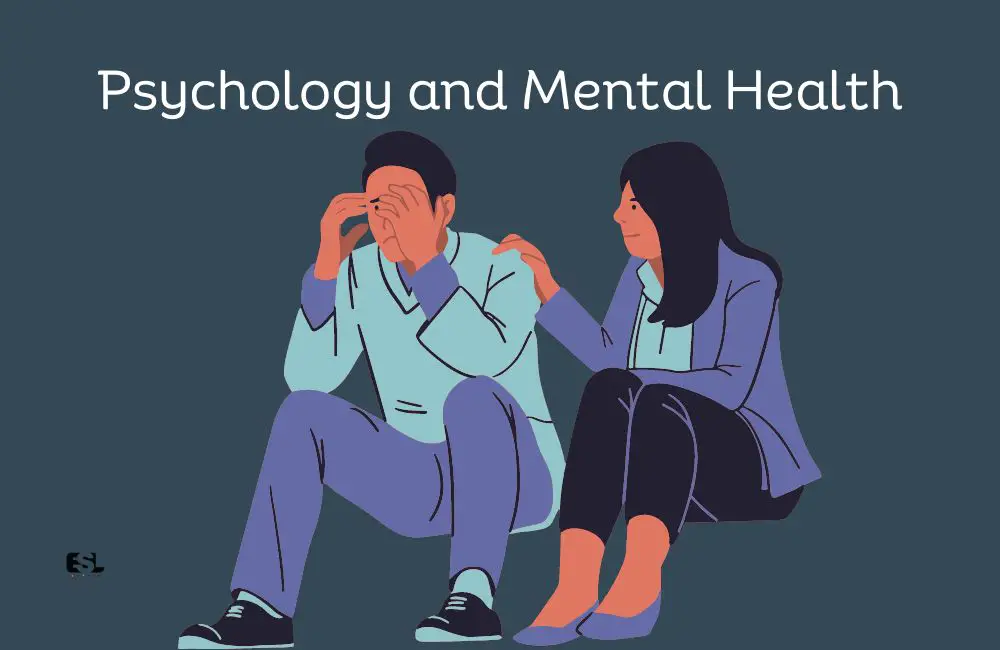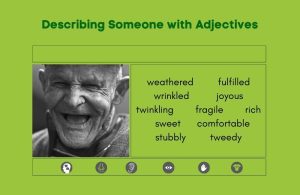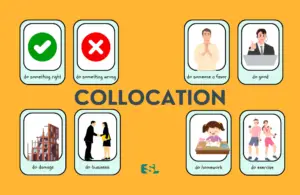Understanding psychology and mental health-related vocabulary is key to enhancing our ability to discuss and address these important topics. This vocabulary can empower us to express our feelings, comprehend the experiences of others, and navigate mental health conversations more effectively.
This post will delve into several categories of words related to psychology and mental health, from general terminology to specific disorders and treatments.
If someone is grappling with emotional turbulence like stress, anxiety, or bouts of low mood, Feeling Good!: A Mental Health Workbook is designed to be your go-to guide for mastering your mental well-being. It equips you with actionable strategies not just to cope but to elevate your mental state for the long term. Take charge of your emotional landscape and pave the way for a brighter, healthier future.
Table of Contents
- 1. General Mental Health Terms
- 2. Specific Mental Health Disorders
- 3. Therapeutic Approaches and Treatments
- Sample Conversation: Using Vocabulary Related to Psychology and Mental Health
- Conclusion
- FAQ: Vocabulary Related to Psychology and Mental Health
1. General Mental Health Terms
These are some of the basic terms that provide a foundation for discussing psychology and mental health.
| Word/Phrase | Meaning/Useage | Example Sentence |
|---|---|---|
| Mental Health | A person’s condition with regard to their psychological and emotional well-being | Mental health is just as important as physical health. |
| Stress | A state of mental or emotional strain or tension resulting from adverse or demanding circumstances | The exam period can cause a lot of stress for students. |
| Anxiety | A feeling of worry, nervousness, or unease about something with an uncertain outcome | She felt anxiety about the upcoming interview. |
| Depression | A mental health disorder characterized by persistently depressed mood or loss of interest in activities, causing significant impairment in daily life | Many people with depression may experience feelings of intense sadness. |
| Therapy | Treatment intended to relieve or heal a disorder | Therapy can be a helpful tool for managing mental health issues. |
| Resilience | The ability to recover quickly from difficulties | Her resilience helped her navigate through tough times. |
| Coping Mechanisms | Strategies which help individuals to manage stress and hardship | Exercise can be a healthy coping mechanism. |
| Self-esteem | Confidence in one’s own worth or abilities | High self-esteem can contribute to a positive outlook on life. |
| Trauma | A deeply distressing or disturbing experience | She is dealing with trauma from her past. |
| Burnout | A state of emotional, physical, and mental exhaustion caused by excessive and prolonged stress | Burnout is common among healthcare professionals. |
| Mindfulness | A mental state achieved by focusing one’s awareness on the present moment | Practicing mindfulness can help reduce stress levels. |
To improve your vocabulary in just 30 days, I recommend to my students an informative, fun, and accessible guide to utilizing powerful language. Millions of individuals have enhanced their academics, job skills, and confidence by dedicating just fifteen minutes daily to the exercises and tests of 30 Days to a More Powerful Vocabulary (Amazon Link), a top-selling. It offers step-by-step methods to bolster language prowess, discover compelling words, and daily vocabulary enhancement with pronunciation guidance.
2. Specific Mental Health Disorders
The field of psychology identifies and studies a wide range of specific mental health disorders. Understanding these disorders’ names and basic characteristics can be crucial for diagnosis and treatment.
| Word | Meaning/Usage | Example Sentence |
|---|---|---|
| Bipolar Disorder | A disorder associated with episodes of mood swings ranging from depressive lows to manic highs | He was diagnosed with bipolar disorder last year. |
| Schizophrenia | A long-term mental disorder involving a breakdown in the relation between thought, emotion, and behavior | Schizophrenia requires long-term treatment and support. |
| Obsessive-Compulsive Disorder | A mental disorder in which a person has certain thoughts repeatedly or feels the need to perform certain routines repeatedly | Obsessive-compulsive disorder can significantly interfere with a person’s daily life. |
| Post-Traumatic Stress Disorder | A disorder characterized by failure to recover after experiencing or witnessing a terrifying event | Many veterans suffer from post-traumatic stress disorder. |
| Eating Disorders | Any of a range of psychological disorders characterized by abnormal or disturbed eating habits | Anorexia and bulimia are types of eating disorders. |
| Phobias | An extreme or irrational fear of or aversion to something | Some people have phobias of things like spiders or heights. |
| Panic Disorder | A psychiatric disorder in which debilitating anxiety and fear arise frequently and without reasonable cause | Panic disorder can cause panic attacks with no clear triggers. |
| Social Anxiety Disorder | A chronic mental health condition in which social interactions cause irrational anxiety | Social anxiety disorder can make everyday activities like working and grocery shopping feel overwhelming. |
| Attention Deficit Hyperactivity Disorder | A brain disorder marked by an ongoing pattern of inattention and/or hyperactivity-impulsivity | Attention deficit hyperactivity disorder is often diagnosed in children. |
| Autism Spectrum Disorder | A developmental disorder that affects communication and behavior | Early diagnosis of autism spectrum disorder can improve quality of life. |
| Insomnia | A sleep disorder in which you have trouble falling and/or staying asleep | Chronic insomnia can have a significant impact on your health and well-being. |
3. Therapeutic Approaches and Treatments
There are many therapeutic approaches and treatments in the field of psychology, and understanding this vocabulary can provide a clearer picture of the options available for managing mental health.
| Word | Meaning/Usage | Example Sentence |
|---|---|---|
| Psychotherapy | The treatment of mental disorder by psychological rather than medical means | Psychotherapy can involve one-on-one or group sessions. |
| Cognitive Behavioral Therapy | A type of psychotherapeutic treatment that helps patients understand the thoughts and feelings that influence behaviors | Cognitive behavioral therapy is often used to treat anxiety disorders. |
| Medication | The use of medicine to treat mental health disorders | The doctor may suggest medication as part of the treatment. |
| Mindfulness-Based Cognitive Therapy | A type of therapy that combines cognitive therapy, meditation, and mindfulness | Mindfulness-based cognitive therapy can help prevent the recurrence of depression. |
| Group Therapy | A form of psychotherapy in which one or more therapists treat a small group of clients together | Group therapy can offer a sense of community and understanding. |
| Art Therapy | A form of psychotherapy involving the encouragement of free self-expression through painting, drawing, or modeling | Art therapy can help individuals express feelings that are difficult to put into words. |
| Family Therapy | A type of psychological counseling that helps family members improve communication and resolve conflicts | Family therapy can help improve troubled relationships within the family. |
| Psychiatric Medication | Medicine used to treat mental health disorders | Psychiatric medication can manage symptoms and support recovery. |
| Electroconvulsive Therapy | A procedure in which electric currents are passed through the brain, intentionally triggering a brief seizure | Electroconvulsive therapy is used to treat severe depression when other treatments are unsuccessful. |
| Play Therapy | A method of therapy that uses play to uncover and deal with psychological issues | Play therapy is commonly used with children. |
| Hypnotherapy | The use of hypnosis as a therapeutic technique | Hypnotherapy can help individuals manage pain, stress, and anxiety. |
If you are searching for an effective English language vocabulary builder, try Word Power Made Easy: The Complete Handbook for Building a Superior Vocabulary (Amazon Link). This time-tested classic has helped millions achieve mastery of English and improve their communication skills in business, the classroom, and in life.
Sample Conversation: Using Vocabulary Related to Psychology and Mental Health
Situation: In a quiet corner of a library, Sarah and Mark discuss their recent psychology class and the importance of mental well-being.
Sarah: Mark, I found yesterday’s lecture on cognitive processes really intriguing. It’s amazing how our brain interprets and reacts to information.
Mark: Absolutely, Sarah. Understanding the intricacies of our psyche and how our conscious and subconscious minds work can be so enlightening.
Sarah: I agree. And when we delved into emotional intelligence, it made me realize how crucial it is in our interpersonal relationships. Recognizing and managing our emotions can lead to better mental well-being.
Mark: True. Plus, the discussion on resilience and how it plays a role in overcoming adversity was very insightful. It’s a testament to our mind’s adaptability.
Sarah: Oh, and the part about stigmas associated with mental health? It’s disheartening that even today, many people are reluctant to seek therapy or counseling due to societal perceptions.
Mark: Right. Psychotherapy and other therapeutic interventions can be so beneficial. It’s essential to normalize these discussions and prioritize our mental well-being.
Conclusion
Psychology and mental health vocabulary can feel overwhelming due to the depth and complexity of the field. However, familiarizing oneself with these terms can lead to more meaningful conversations and an increased understanding of mental health issues.
From general terminology to specific disorders and treatments, each word serves as a tool for expressing experiences, empathizing with others, and navigating the vast landscape of mental health. Knowledge of these terms can also help dismantle the stigma associated with mental health issues, encouraging a more compassionate and inclusive society.
FAQ: Vocabulary Related to Psychology and Mental Health
1. What are cognitive processes?
Cognitive processes refer to the various ways our brain functions to gain knowledge and understanding, such as thinking, perceiving, remembering, and problem-solving.
2. How does the psyche influence our behavior?
The psyche is the totality of the human mind, both conscious and unconscious. It greatly influences our thoughts, emotions, and behaviors, shaping our interactions with the world around us.
3. What is emotional intelligence?
Emotional intelligence is the ability to recognize, understand, manage, and effectively express one’s own emotions and understand and influence the emotions of others.
4. How does resilience benefit mental health?
Resilience is the capacity to recover quickly from difficulties. In terms of mental health, it allows individuals to adapt and bounce back from stressors, promoting overall well-being.
5. What is the difference between the conscious and subconscious mind?
The conscious mind encompasses our current thoughts, feelings, and perceptions. In contrast, the subconscious mind stores memories, beliefs, and past experiences that influence our behavior, often without our explicit awareness.
6. Why is addressing stigmas around mental health important?
Addressing stigmas is crucial as they can prevent individuals from seeking help or talking openly about their mental health challenges, leading to isolation and unaddressed issues.
7. What is the purpose of psychotherapy?
Psychotherapy is a therapeutic method used to treat various mental disorders and emotional difficulties. It aims to improve an individual’s well-being and mental health, addressing problematic behaviors, beliefs, and emotions.
8. Why is prioritizing mental well-being essential?
Prioritizing mental well-being ensures a healthier, more balanced life. Good mental health improves overall life satisfaction, relationships, and even physical health.
9. How do societal perceptions impact mental health?
Societal perceptions can create barriers for those seeking help or understanding. Negative stereotypes and misconceptions can lead to misjudgments, lack of support, and increased feelings of isolation for those with mental health challenges.
10. What role does self-awareness play in mental health?
Self-awareness involves recognizing and understanding one’s emotions, beliefs, and behaviors. Being self-aware helps individuals identify their needs, strengths, and areas for growth, contributing significantly to mental well-being and personal development.
11. Can environmental factors influence one’s psychological state?
Yes, environmental factors such as living conditions, relationships, work environment, and exposure to traumatic events can significantly impact one’s psychological well-being, either positively or negatively.
12. What is the difference between intrinsic and extrinsic motivation in psychology?
Intrinsic motivation comes from within, driven by personal satisfaction or interest in the task itself. Extrinsic motivation is driven by external rewards or avoiding negative outcomes, such as praise, money, or avoiding punishment.
13. How do coping mechanisms affect mental health?
Coping mechanisms are strategies individuals use to deal with stressful situations. Healthy coping mechanisms, like meditation or journaling, can promote mental well-being. In contrast, unhealthy ones, like substance abuse or avoidance, can exacerbate mental health issues.
14. Why is it crucial to understand one’s triggers concerning mental health?
Understanding one’s triggers—specific situations or stimuli that evoke strong emotional reactions—helps in anticipating and managing potential challenges, ensuring better emotional regulation and mental well-being.





